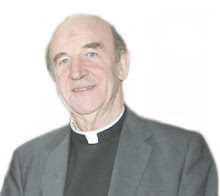Romero legacy of hope echoes on for oppressed and dispossessed
By Fr. Tom Stack
Thirty years after his
death, Oscar Romero
remains a hero for all who
go hungry in body and soul.
Images of Oscar Romero have been visible everywhere in El Salvador in recent days. Across the country, enthusiastic crowds gathered to commemorate this extraordinary Christian leader. The 30th anniversary of his death last week was met by an outpouring of affection for his memory.
Awareness of Romero’s reputation has spread beyond his native land, and the historic witness he played to truth and justice is now marked annually in many countries of the Americas and beyond.
In Dublin, a special memorial mass was celebrated under the auspices of the Irish Missionary Union, attended by Franciscan friars and Sisters of St. Clare, both of which orders have Irish personnel currently working in El Salvador.
Oscar Romero was archbishop of San Salvador from 1977 until he was brutally assassinated by a government military death squad, who gunned him down while celebrating the Eucharist in the chapel of the city’s cancer hospital on March 24th 1980. That shocking event is still mourned each year.
The circumstances of his death are not the only reason for Salvadoreans’ annual mourning for their late archbishop. The anniversary also revives the memory of a potent, hope-filled aspiration for the poor of El Salvador, which it seems has never been quenched.
Besides the appalling manner in which he was killed, he is venerated for his commitment to the struggle for human rights and social justice which characterised his ministry.
Last week, I had an opportunity of viewing a film which featured Oscar Romero, which was shown on RTÉ in 1980, just weeks before his death.
It was part of a Radharc series, presented by the late Fr. Joe Dunn. Although filmed 30 years ago, what it portrays remains remarkable as the embodiment of Christian integrity in a singular man – a gift that never grows old. It reflects the Salvadorean bishops’ consuming concern for truth, justice and compassion on behalf of the dispossessed of his countryfolk.
The Film is titled Who Is for Liberation?, a reference to the then emphasis on a particular pastoral approach to socio-religious issues which came to be known as “Liberation Theology”.
Its priorities are based on a number of fundamental truths: It is nothing less than an affront to preach the existence of a provident God to a people suffering a state of oppression that breeds hunger and helplessness. Such are deprived of freedom, not by God’s will, but as a result of the sinfulness of an unjust political and social establishment. This oppressive condition is to be confronted by the communal strength engendered by the social solidarity of those who are dispossessed.
In this way hope is nurtured, especially by their sharing of the meagre resources which these poorest of citizens can offer to one another. Pastoral programmes driven in this way will inevitably include a political, though non-violent, dimension.
This pastoral stance is seminally contained in the teaching of the Second Vatican Council. It is further articulated by the emphasis on the “preferential option for the poor” which emanated from the subsequent Latin-American conference at Medellin, Columbia, in 1968.
In addition, the World Synod of Bishops in 1971 declared: “Action on behalf of justice... appears to us as a constitutive dimension of the Gospel... and of the Church’s mission for the liberation of every oppressive situation.”
This renewed vision of the social theology of the Catholic Church was personified in the witness and work of Archbishop Romero. After 30 years it still lives in his legacy.
Romero’s prophetic task may have been cruelly cut short by the machinations of the wealthy and greedy of his own country, but he remains a hero for all those, without number, who still go hungry in body and soul – an enduring symbol of both justice and hope.
It was Jesus Christ who said “You know that among the pagans, their so called rulers lorded over them and their great men make their authority felt. This is not to happen with you, No; anyone who wants to become great among you must be your servant” (Mark 10:42).
As he continues to echo these words through how he lived and through his ministry, Romero will not be forgotten. Oddly, he has not yet been officially deemed either “martyr” or “confessor” by the Catholic Church.
I wonder why?
Fr. Tom Stack, Milltown Parish, Dublin 6
(Published in the Irish Times, March 30th 2010)
Wednesday, October 27, 2010
Subscribe to:
Post Comments (Atom)

1 comment:
What a telling piece. I think the seeds he planted were more than just of salvation. He planted seeds of hope, love, and justice that we can see bearing fruit today.
Oscar Romero is featured as hero of the month over at moralheroes.org
check him out and tell your friends http://moralheroes.org/oscar-romero
Post a Comment